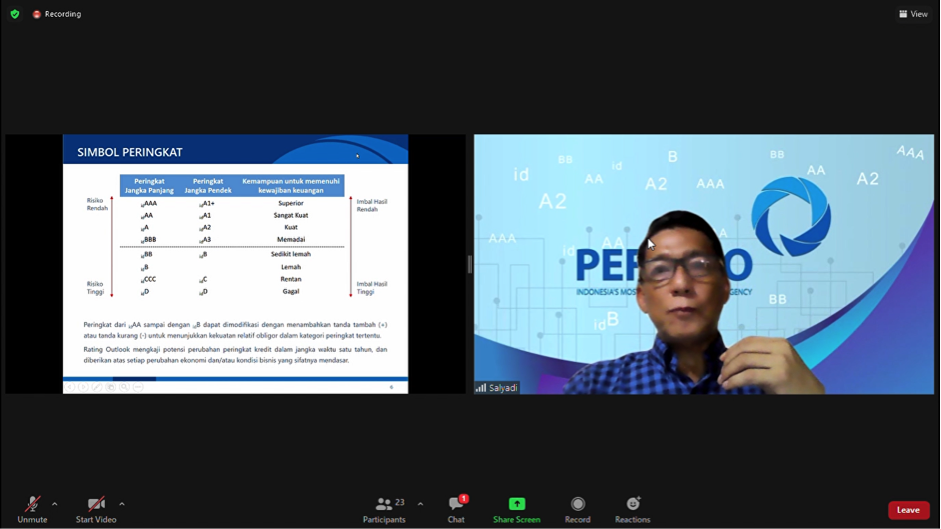Indonesia has entered into Investment Grade, which is usually the reference for investors in investing. In short-term investing, it can be viewed from the financial statements. Meanwhile, the long-term projection uses an annual report for 5 years.
President Director of PT. Pemeringkat Efek Indonesia (PEFINDO) Salyadi Saputra stated it when he became a guest lecturer on a fixed income course with the theme Credit Rating in Indonesia which was held by MSM DSM SBM ITB.
PEFINDO has changed its rating in several ways. Changes will occur via Credit Watch which can change its rating in less than 90 days, while potential Outlook changes ratings within 12 – 24 months. However, Salyadi added that if PEFINDO is deemed to have enough information to support the opinion on the change in rating, it may be changed directly.
The ranking process goes through several stages, including rating requests, analysis process, rating determination, appeals process, and publication & monitoring. In the ranking stage, a rating committee meeting (internal) is to be held.
Salyadi conveyed that at the committee meeting it was emphasized that there must be limits on the influence that anyone may have on the opinion of PEFINDO’s rating. The data required for this ranking include financial reports for the last 5 years, publications, company profiles, projected reports for the next 5 years, detailed questionnaire answers related to operational and industry data.
The method used by PEFINDO in the first rating is the “Stand Alone Rating”. It considers industry, business, and financial factors. After that, it reviewed who are the shareholders with the support of the parent to determine the “Final Corporate Rating”. Then, the rating is further influenced by the debt structure (loan/subordination) to produce a “Debt Securities Rating”.
The level of main support is based on capabilities, such as the main financial institution, parent rating, and willingness which is based on the subsidiary’s degree of importance. The parameters reviewed include contribution, ownership and control, business integration, reputation or brand share, business synergy, financial performance, and track record.
Salyadi said, based on the PEFINDO database as of January 31, the development of corporate debt securities in Indonesia was very good and kept increasing until 2017. This was driven by very low interest rates and the development of government infrastructures so that many BUMNs issued bonds.
PEFINDO divided the sectors into three, namely FI (financial institution), Non-FI (non-financial institution), and OTH (securitization). In 2012 the highest default rate in the Non-FI sector was 3.74 percent and in 2019 and 2020 it decreased to 2.17 percent and 2.20 percent. From the data provided also, until December 2020, the initial triple-A rating instrument has never experienced defaults, either issuing companies or debt instruments. As a closing statement, Salyadi stated that the Capital Market should provide a much bigger contribution going forward so that it may become a competition among banks.





